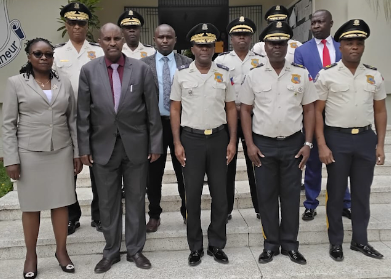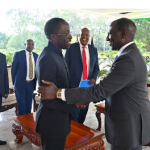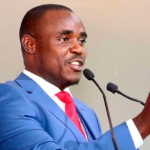Upon returning to Kenya on May 27 after a weeklong reconnaissance tour in Haiti, a Kenyan team began drafting their report on their findings for planned deployment.
Officials concluded that the local police in Haiti urgently require retraining to restore law and order. They emphasized the need for special squads capable of responding to various scenarios and containing threats.
During their time in Haiti, the team participated in ongoing training for a small group of special squads in Port au Prince.
They also delivered a lecture outlining their expectations. These special squads, being trained by an American team on the ground, will be essential when additional foreign police officers arrive.
Teams are currently identifying translators for anticipated operations, including training, patrols, and other activities in both Kenya and Haiti.
Over 1,000 police officers, including units such as the Rapid Deployment Unit (RDU), Anti Stock Theft Unit (ASTU), General Service Unit (GSU), and Border Patrol Unit (BPU) from Kenya, as well as officers from other countries like Chile, Jamaica, Grenada, Paraguay, Burundi, Chad, Nigeria, and Mauritius, will be deployed to Haiti to combat gangs terrorizing the locals.
President William Ruto announced that the police peacekeeping force is expected to arrive in Haiti within approximately three weeks to address the escalating gang violence.
Although the officers were initially expected to begin arriving by the end of May, logistical challenges on the ground have necessitated a two-week extension. As per Ruto’s statement, the latest possible arrival date is June 15.
In Haiti, there is high anticipation that the arrival of foreign forces will alleviate the stronghold of armed gangs, which has led to shortages in medications and food, as observed by the team.
Kenya, leading the 2,500-member security force, has reached an agreement with the Haitian government on rules of engagement for the security personnel. These personnel may encounter fierce resistance from the well-armed Haitian gangs that currently control the capital city and have overwhelmed local law enforcement.
The delegation, led by Deputy Inspector General of Administration Police Noor Gabow, engaged with the seven members of the Transitional Presidential Council, which is temporarily exercising the functions of the presidential office until a new president is elected and inaugurated.
Discussions were also held with local police commanders to chart a way forward. It was determined that some of the police officers in Haiti require retraining in areas such as combat, law enforcement, and policing.
As part of the agreement, at least 2,000 Haitian police officers will undergo training in Kenya. Middle and lower cadre officers will receive short-term training on law, combat, and policing matters before returning to Haiti for deployment.
Key deployment locations for the over 2,500 police officers in Haiti were identified by the team. It was agreed with local leadership that these officers would be stationed at strategic sites such as the main port, airport, main hospital, two main highways, and the White House, which serves as the presidential palace.



